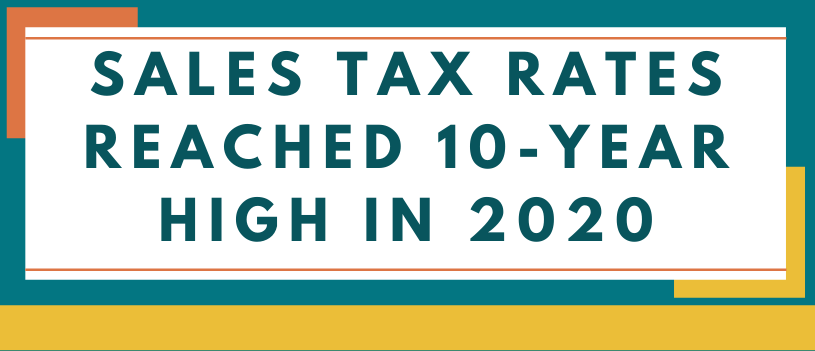According to Accounting Today, sales tax has increased to levels that haven’t been seen in over ten years. This means that during the pandemic, many companies had to collect even more tax revenue from online shopping.
Vertex, a tax tech company, said there were almost 600 sales tax rate changes across the U.S. in the year of 2020. This decade-high reached 10.12% across jurisdictions. This number is found by combining the tax rates from local district, to county, to city, to state. However, most changes were found to be occurring at city and district level. About 70% of change occurred at district level, and 65% sales tax rate change at the city level, according to this breakdown. The number of cities and districts that are new to taxes are at a 10-year high; newly taxing cities (69) and new district taxes (177).
In 2018 a Supreme Court decision was made regarding the South Dakota v. Wayfair case. This decision was regarding passing market facilitator laws so that e-commerce merchants could collect taxes from customers that were in-state purchasing from out-of-state vendors. This law has helped states greatly over this past year with tax revenues since most people opted to shop online in lieu of going out during the pandemic.
Cities also became desperate for an increase in tax revenue. Their finances were strained by the pandemic and emergency demands, which in turn likely led to an increase in local taxes. In Ouachita Parish, Louisiana, in the Sterlington district, they found the highest sales tax rate of 12.95%.
In many cities and states, they rapidly attempted to change rates during the beginning of the year for fear of large revenue gaps that they expected. However, they ended up having much more tax revenue coming in than they expected. The Vertex Vice President of Tax Research Bernadette Pinamont said, “Although the frenetic pace of rate-change activity we saw in early 2020, in particular with cities, slowed in the second half of the year, indirect tax teams still need to keep their eyes on several possible tax trends this year as all jurisdictions look to recover lost revenue and close COVID-related budget deficits.”
Because of these actions, Pinamont predicts that there will be an increase in audits which is common after economic downturn to try and generate more income. She tried to warn against doing this. She said that it is likely that the increased audits will likely be directed towards online merchants and marketplaces that continue to grow.
If you sell taxable products and/or services, be sure to check the tax rates to make sure you are collecting and remitting the correct amount. If it’s discovered you underpaid, you will be responsible for the tax balance plus interest and penalties, neither of which you’ll want to pay.
